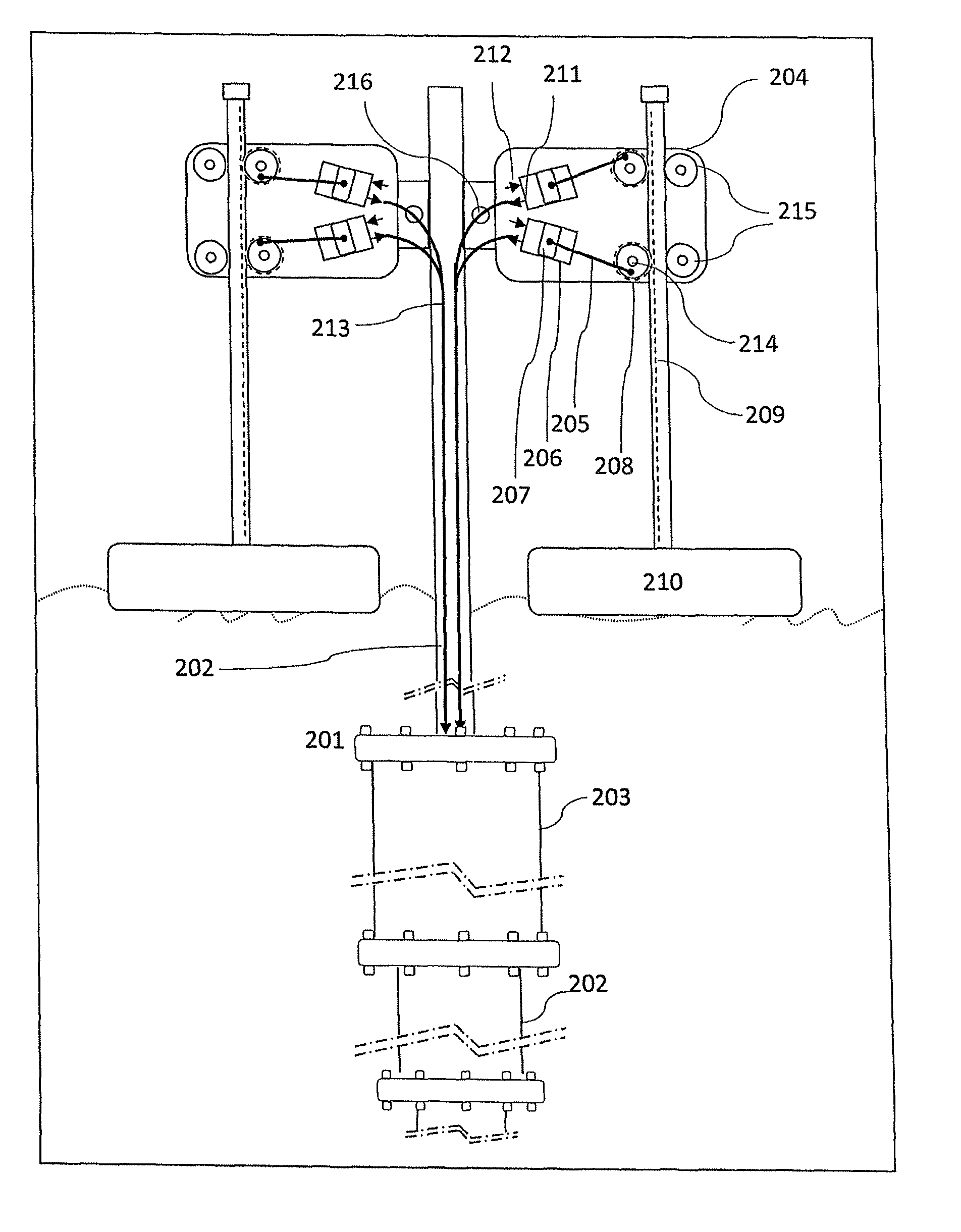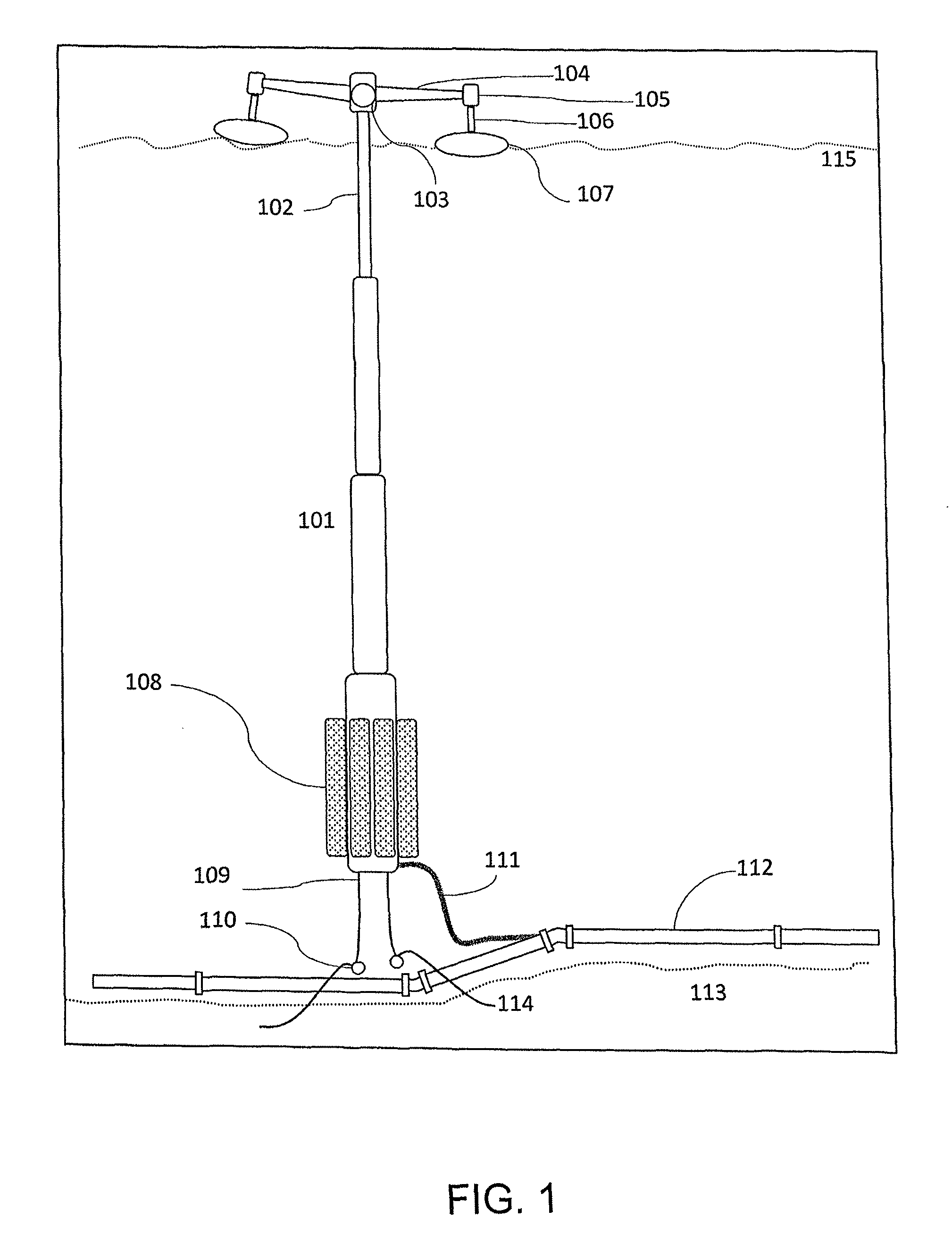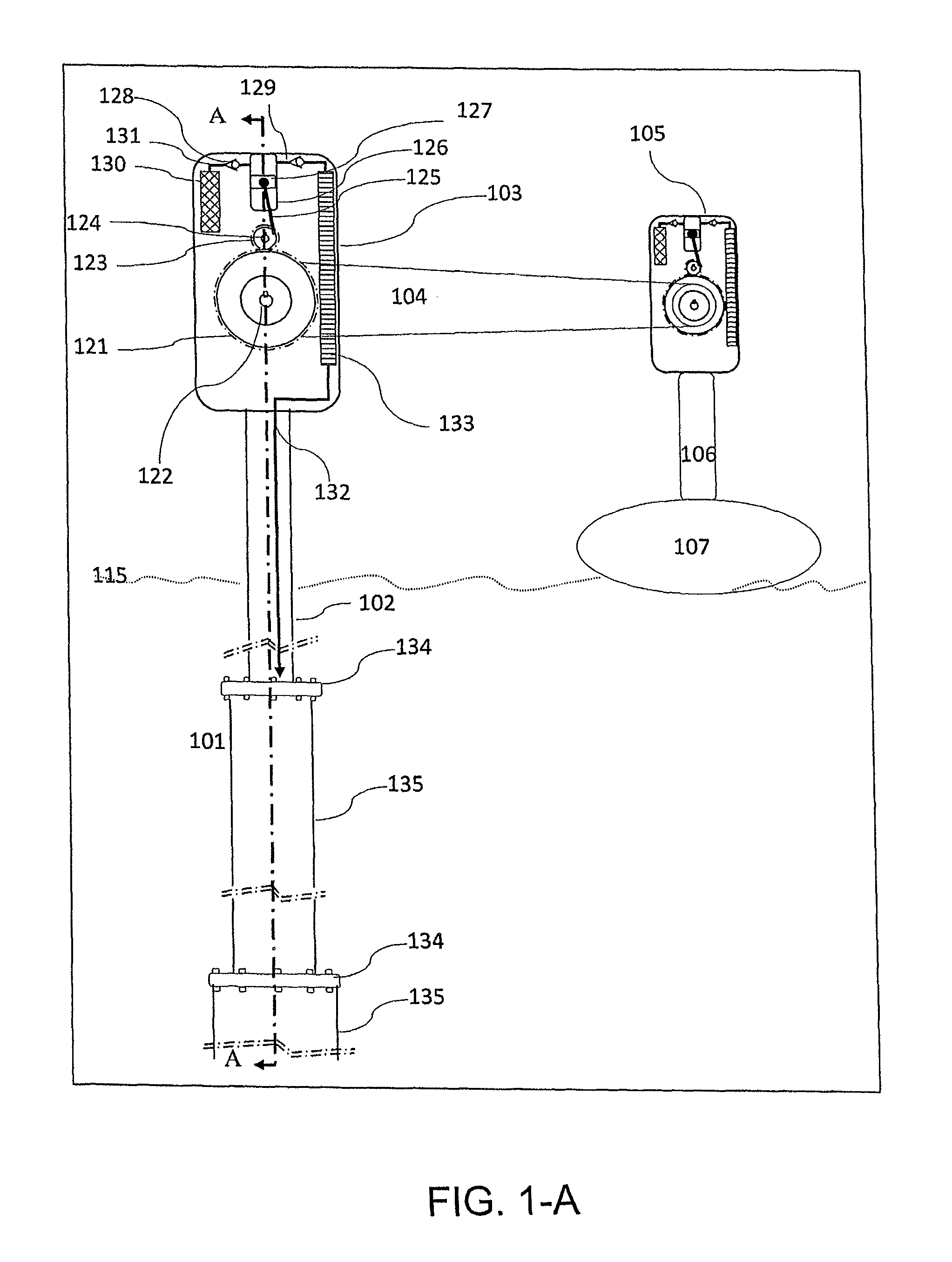Wave energy conversion device
a technology of wave energy and conversion device, which is applied in the direction of floating buildings, mechanical equipment, machines/engines, etc., can solve the problems of high cost of current technologies, large infrastructure requirements and achieve constant rate upon demand, high compression ratio of piston pumps, and low equipment costs
- Summary
- Abstract
- Description
- Claims
- Application Information
AI Technical Summary
Benefits of technology
Problems solved by technology
Method used
Image
Examples
first embodiment
[0025]The main components of a first embodiment are shown in FIG. 1. An elongated hollow vessel, the spar buoy 101, is submerged in the sea with only a smaller tubular beam, the stem 102, protruding through the sea surface. At the top of the stem 102 is an air pump unit 103. A lever arm 104 connected to the drive shaft of the pump unit 103 is rigidly attached to another similar pump unit 105. Similar to lever arm 104, vertical lever arm 106 extends from pump unit 105 is rigidly attached a float 107. The spar buoy 101 is secured with optional weights 108. The mooring chain 109 connected to the body 101 at the deep end secures the entire device. A pipeline hose 111 connects the spar buoy 101 to a submarine pipeline 112. The other end of the chain 109 is secured to the sea bed 113 at a suitable anchoring location 114. Wave motion causes the floats to drive the air pumps to generate compressed air. The compressed air, or other fluid, is returned to the spar buoy 101 for storage and tran...
sixth embodiment
[0059]In a sixth embodiment, the vertical orientation of the spar buoy may be horizontal or angled relative to the surface of the sea, and may be combined with the vertical orientation. FIG. 6 shows a horizontal spar buoy 601 which is connected to multiple vertical spar buoys 602 and stems 603. The function of the spar buoy 601 remains the same, providing a large inertial mass as well as storage for the compressed air. The vertical spar buoys 602 of FIG. 6 need not be included, so that the horizontal spar buoy 601 is directly connected to stems 603. Multiple stems 603 may be connected to a single spar buoy 601 in a horizontal orientation, and multiple horizontal spar buoys may be combined to form a network of stems 603 and bodies 601.
[0060]The float and pump unit 604 combination may be any of the embodiments described above. As in the first embodiment, weights 605 may be attached to the bottom of the spar buoy 601 to maintain the buoyant stability. Auxiliary floats may be used to su...
PUM
 Login to View More
Login to View More Abstract
Description
Claims
Application Information
 Login to View More
Login to View More - R&D
- Intellectual Property
- Life Sciences
- Materials
- Tech Scout
- Unparalleled Data Quality
- Higher Quality Content
- 60% Fewer Hallucinations
Browse by: Latest US Patents, China's latest patents, Technical Efficacy Thesaurus, Application Domain, Technology Topic, Popular Technical Reports.
© 2025 PatSnap. All rights reserved.Legal|Privacy policy|Modern Slavery Act Transparency Statement|Sitemap|About US| Contact US: help@patsnap.com



